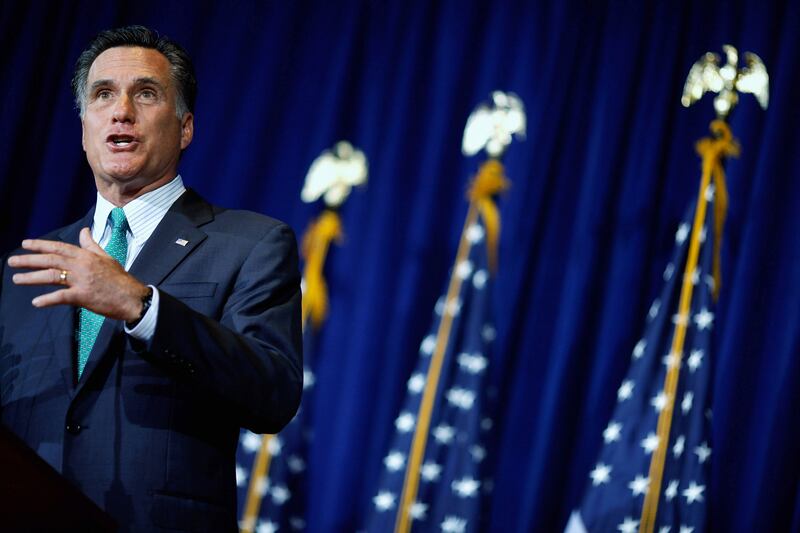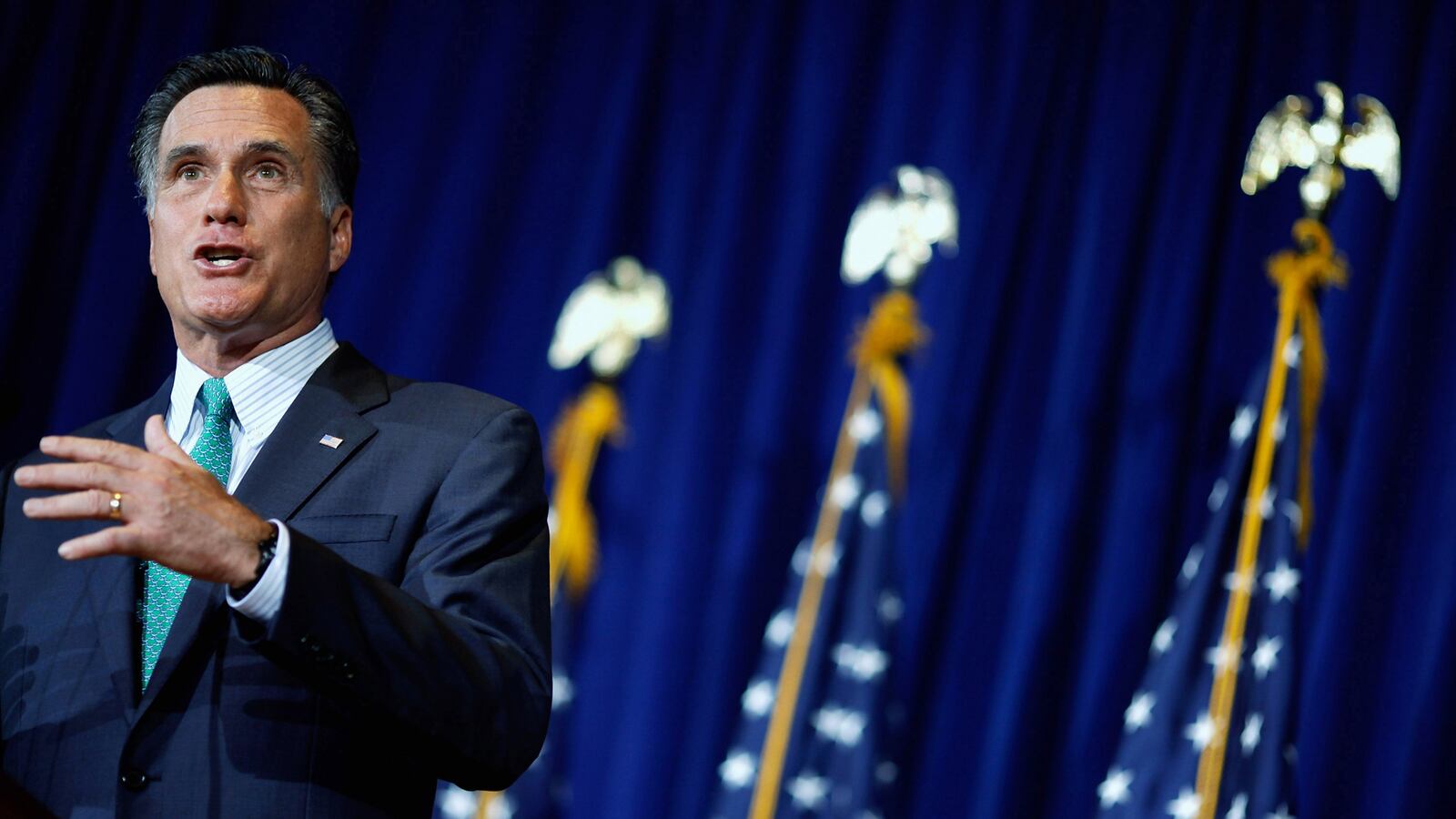In my most recent piece in The New York Review of Books, I tell readers a bit about the ongoing debate between social scientists and journalists about the degree to which elections are decided by economic conditions. Overgeneralizing a bit, economists and political scientists think they are, while journalists are more likely to think no, politics and campaigns matter, as well as all the hiccups along the way that dominate cable news. The debate just got more interesting, because this new NBC/Wall Street Journal poll shows pretty clearly that Mitt Romney wants the poli-sci crowd to be right, while Barack Obama’s campaign will need to throw in with the scribes.
First a bit more on the debate. If you want to be brought quickly up to speed, read this March 26 post from Nate Silver, who burrowed into this question of whether economic conditions (called “the fundamentals” by adherents) decide elections. Silver concludes that the evidence suggests that elections are not a function of economic conditions. Going back to 1948, Silver found some correlation between the economy and the election outcome in the 1972-88 period, but very little before or after. For example, of 16 such models in 2008, they were off from the actual result by an average of 7.8 percent. (If you’re interested in following this debate on an ongoing basis, start with the blog The Monkey Cage, a group blog of liberal academics where they delve into this from time to time.
My view? I would have made a very poor academic, because I’m one of those people who doesn’t understand this urge to quantify everything. Obviously the economy matters. Equally obviously, when Jerry Ford said there was “no Soviet domination of Easter Europe,” or when Sarah Palin couldn’t name a single newspaper she read, or when Mike Dukakis crawled into that tank for the worst photo-op in photo-op history, well, these things mattered too. I don’t really get the point of trying quantify which matters more. Which I guess is a way of saying that I don’t think a lot of things can or should be quantified. Exactly how much better is Blood on the Tracks than Desire—6.1 percent, 10.4 percent, or something else? Who cares? It’s a little better. And of course there are some people who screw up the sample by thinking it’s not.

But politics is a quantifying business, and so we return to this interesting little batch of questions in the NBC/Journal poll. In this pdf of the full results, go to question 20 on page 15. Respondents are asked to say whether Obama or Romney is “better” on a series of qualities: is easygoing and likeable; cares about average people; is compassionate; looks out for the middle class; is consistent in beliefs; and so forth.
Obama leads Romney on almost everything. In many categories he just slaughters him. Easygoing and likeable, 54 to 18. Is compassionate, 52 to 23. Middle-class looker-outer, 48 to 27. Even good commander in chief, 43 to 33 (I guess they haven’t seen the clips of Obama apologizing for Ameri—oh, right those clips don’t actually exist!). Of 13 questions, Romney leads Obama on exactly two. He leads on “changing business as usual in Washington,” but any challenger is going to lead an incumbent on that, because the sitting president by definition embodies business as usual in Washington. So that one, as they say at the racetrack, you can toss.
That leaves us with one meaningful category on which Romney leads—“having good ideas for how to improve the economy,” by 40 to 34 percent. All of this tells us, I think, a lot about how this campaign might play out. Three points:
1. Romney’s only hope is a bad economy (bracket here the possibility of earth-shaking and totally unpredictable events). He needs bad jobs numbers over the summer and into September, and the consumer-confidence needle dipping back into the negative zone. He ain’t gonna win this thing on likeability. He’s not going to win it, the commander-in-chief result suggests, on the usual Republican accusations that the Democrat is weak. And we know he’s not going to win on social issues, on which most independents think the GOP is off in some weird and unnamed galaxy.
2. Romney, therefore, will (if he’s smart, that is) try to avoid every topic that is not the economy. As the weeks go on in this race, every week in which the debate is chiefly about women or immigration or Afghanistan or whatever will be a week that Obama wins. It doesn’t even really matter if Romney holds his own on the particulars. These are loser topics for him and the GOP.
3. Obama will (if he’s smart) try to put these subjects at the center of the debate. He can’t exactly avoid talking about the economy. It’s a pretty dominant subject. And in fact, there are many points on which he can attack Romney on economics (Medicare, his royalist tax plan, etc.). But Obama will probably try to talk a lot about women and immigration and Osama. In addition, he’ll do things that emphasize likeability and so forth, and that highlight Romney’s detachment and insulation from the normal vagaries and vicissitudes of daily life. The Obama campaign should try to create situations that will bait Romney into doing more things like mentioning his wife’s dressage horses or insulting the cookies served to him by a middle-class family purchased from the neighborhood’s most beloved bakery.
Romney needs a “fundamentals” election. In fact, he needs the most fundamentals-ist election of all time. He needs the voting public to conclude, “we don’t really like this guy, in fact we pretty well dislike him; but we need him.” A tough sell.






